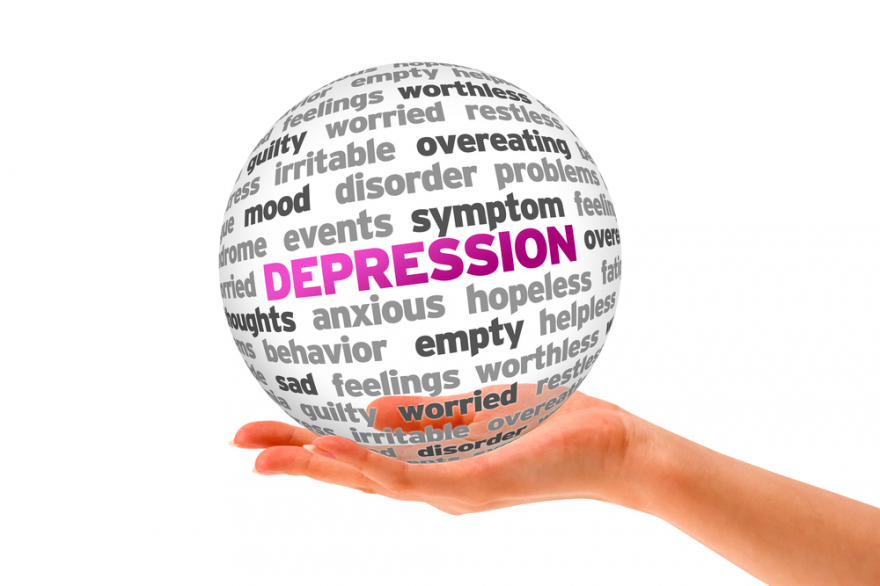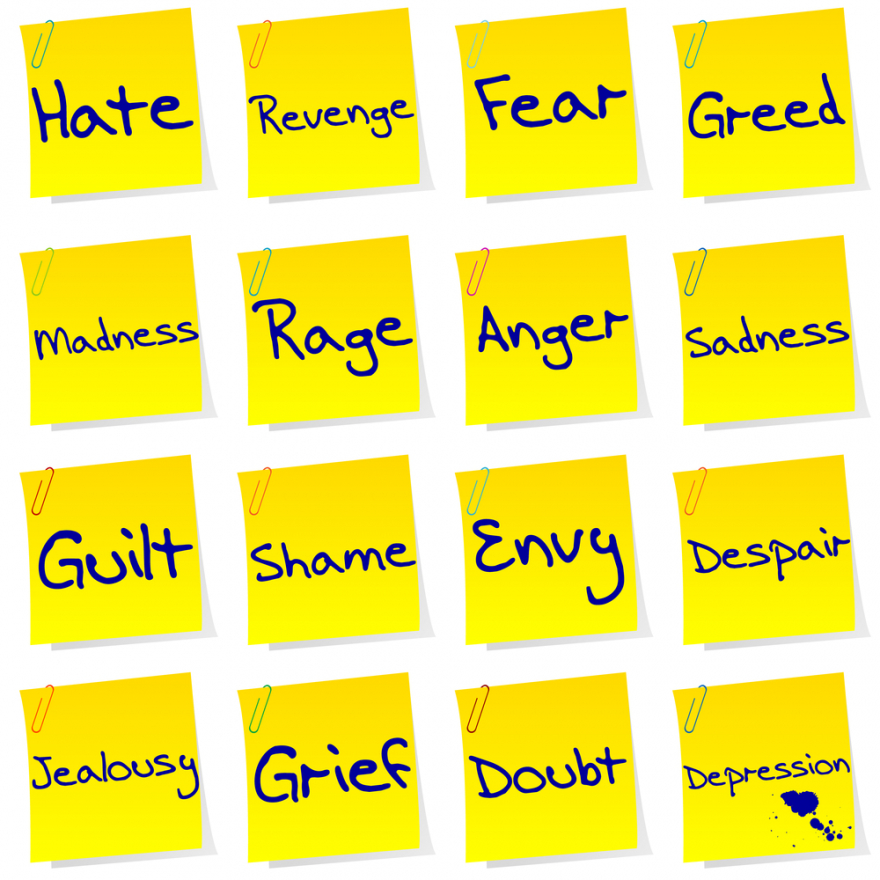How Upheaval Impacts Us Emotionally
Rev. Dr. Kitty Boitnott, NBCT, RScP
Heart-Centered Career Transition & Job Search Coach | Stress Management Coach
Last week, I started a series on the topic of "upheaval" and how it can impact our lives when it happens. And all of us have been experiencing upheaval to a greater or lesser extent since March. That was when the country closed down for COVID-19.
In this second in the series on the impact of upheaval, I am going to offer what you might expect as far as emotional reactions. Most people experience these emotions during and after a massive disruption in their lives. You might already be experiencing these emotions, given everything that is going on.
You would be the exception if you weren't.
After all, we are dealing with the ongoing fallout of the coronavirus and an unprecedented economic downturn. We are currently stressing about school openings this fall.
Add social unrest and two massive storms that hit the gulf just this week. These are a few of the things that are happening right now all at once.
Look over the list below to see if you can identify with any of these emotions in yourself. Don't judge yourself if you do. Just pay attention to how you might be feeling and know that if you are experiencing these feelings, it's normal. It's human for us to experience these different feelings when things go awry in our lives.
What you don't want to do is stay stuck in them if they are taking a negative toll on you, your relationships, or your health.
Shock

When an adverse event comes out of the blue at you like the loss of a job or the death of a loved one, the first reaction is to feel shocked. You can't believe this is happening! You will likely feel like you are suddenly in a dream. You may feel distant and might even experience a sensation of being "out of your body." You struggle to accept the new reality.
This combination of feelings may last for a few days or even a few weeks, depending on the significance of the loss and the sense of disruption in your life.
Disbelief
You will probably then go into denial. You don't want to believe the event ever happened. But this can be dangerous. If your house is on fire, you have to get out. You can't deny that it's happening.
Maybe you're still reeling from a massive earthquake, and you're entirely unprepared for the aftershock that may come a few hours--or days--later.
The bottom line is that for a time, you want to refuse to accept the reality of the situation.
Fear
What if the event is not over yet? Is it possible that it could get even worse? You could become obsessive in this state, depending on the level of the trauma. If the upheaval has been incredibly traumatic, you might develop phobias.
Some people never leave this state. They live in a constant state of fear.
They keep waiting for the "other shoe to drop."
Sorrow

It's normal to feel sadness when things go awry. During upheavals in our lives, this sadness can become depression; however, if it becomes prolonged. You may start to experience a sense of hopelessness and think that you will never feel happy again.
There is no time limit on how long you should allow yourself to feel sad. The length of time depends on the nature of the loss. The loss of a loved one is something you never get over--you just learn to get through it and live without your loved one in your life.
With time, the sorrow will ease so you can get on with life.
Weakness
When upheaval comes at you, it is outside your control. It's natural to feel helpless in the face the event. This feeling can also bring anger at yourself for being weak and unable to change things.
You might tell yourself you should be handling things with more strength. Don't beat yourself up.
Be patient with yourself.
Anger
It's normal to feel angry when something goes sideways in your life. But anger causes physical responses that can be unhealthy if you don't manage your anger intelligently. Uncontrolled rage raises your blood pressure. You will experience a higher heart rate. You may also experience indigestion and headaches.
Anger can even cause heart attacks, and it is sometimes the cause of strokes. If you experience a sense of rage over the situation, pay attention to your physicality. You may need to get help.
The adrenalin rush that goes with anger is a natural stress reaction, but in the long run, it can cause a multitude of adverse health conditions that you want to avoid.
Guilt

Guilt is a natural part of the process when you experience upheaval. Sometimes, people experience survivor's guilt. If you fare better in a natural disaster than your neighbors, you may experience a sense of guilt about feeling relieved.
You may feel guilty, for example, that you are relieved that the fire spared your house even though it engulfed your neighbor's house.
The same goes for those who are spared in other natural disasters. You feel a little guilty that you were spared while others weren't. You're happy you were spared. You feel bad for your neighbors, though, and then you feel guilty. It's natural.
Relief
Relief is another complicated emotion. If things are getting better for you than for others, you might feel like you shouldn't feel relieved. You may even feel guilty about feeling relieved.
See "guilt" above to see more about the connection between feeling relieved and feeling guilty about feeling relieved.
Shame is a painful feeling. It comes from a sense that you have done something wrong, and you fear being found out. Brené Brown, a research professor who has studied shame, defines it this way:
"Shame...[is] the intensely painful feeling or experience of believing that we are flawed and unworthy of connection."
Shame's companion is guilt. Both emotional responses are appropriate on occasion, but don't let shame take over your life.
Shame is neither helpful nor productive in the long run.
Worry
Being anxious about what's going on is natural. But worry for the sake of worrying is also neither productive nor helpful. It spawns physical responses like insomnia, chronic stress, and even panic attacks.
Worry can lead you to become indecisive or afraid to upset whatever the new status quo is. Some people worry about everything. It's not helpful.
Confusion
It's nearly impossible to get your thoughts in order during an event that creates upheaval. This is especially true in the beginning when the change in your life is still new and unfamiliar. Racing thoughts make it difficult to concentrate. Or you may have trouble figuring out what to do next.
Depression

You may become obsessed with the question, "Why has this happened to me?" You can become thoroughly shaken by an event that changes your life significantly. Feeling depressed for a while after a significant change in your life is natural. If it is short term, you'll recover and move on.
Be aware that depression can lead to poor decision-making. You may start self-medicating with pills or alcohol. Or perhaps food will be your drug of choice. Sometimes people who are depressed just want to sleep all the time. They use sleep as an escape.
If you fall into a deep depression that lasts over a long time, you may even start to contemplate suicide. You're tired of hurting all the time. I get it.
But this is a time when you do need to get help. Find someone you can confide in and start the healing process by putting things into perspective. Reframing events can help a lot.
It will help if you talk it out.
We are all human, and as humans, we feel emotions. Some of us feel more deeply than others sometimes. We deal with tragedy and upset in different ways.
The key is to remember that everyone experiences these feelings at some time in their lives. I have certainly felt them all at different times in my life.
Even as I write this post, I am grieving the loss of an aunt who passed away just yesterday. Her passing has made me think of our shared history together and how life moves on. It has made me think of memories from childhood that I will treasure forever.
The upshot is that we need to be aware that these emotions are normal. But be mindful of them. But don't allow yourself to stay stuck in any one state for too long.
You can't enjoy your life if you are always feeling guilty about something. You won't be truly free if you continuously feel shame around something in your life.
The same goes for all of the other emotions outlined above as well as other natural emotions that we all feel at times.

Be on guard and protect yourself emotionally to the extent that you can. Granted, some events that happen to us are difficult to make peace with.
If you are a victim of sexual abuse or some other form of physical abuse, it takes a long time to work through the feelings that go with those events. Be gentle with yourself.
Get help when you need it. And recognize that we all experience some tragedy in life.
It is the nature of life for whatever reason.
But our goal is to find happiness despite the sadness and tragedy in life. So, keep your eye on what may help you to feel better even in the face of tragedy. Give yourself time to heal. And move on to find happiness again. You owe that to yourself and your loved ones.
Until next time.
P. S.
If one of the things that have happened to you lately is that you lost a job or quit your job because of COVID-19, it may be time for your to reinvent and retool yourself for your new future.
I am offering a new webinar workshop to promote the start of a new 16-week cycle of the "Jumpstart Your Job Search 2.0 Group Coaching Program."
The webinar workshop is entitled, "Design Your Career in a Post-Pandemic World," and I am offering it on two separate occasions:
Thursday, September 17, 2020, at 1:00 PM EST and
Saturday, September 19, 2020, at 2:00 PM EST.
I will be talking about what you need to know and do if you want a new job or want to start a new career in the post-pandemic world.
And I will be promoting the start of a new group coaching cohort that will be starting September 21, 2020.
If you are interested in the possibility of joining the September 21st cohort, take a look here:
Want to talk about your specific situation before deciding to join the program? Let's chat. I offer a complimentary 20-minute Discovery Session. Schedule it here: http://teachersintransition.com/calendar.
|